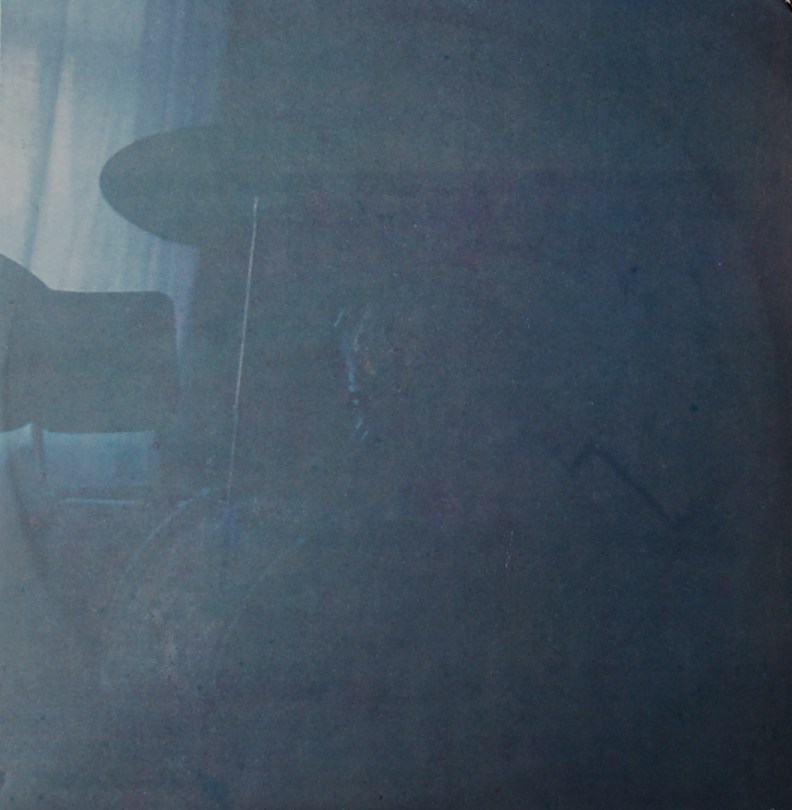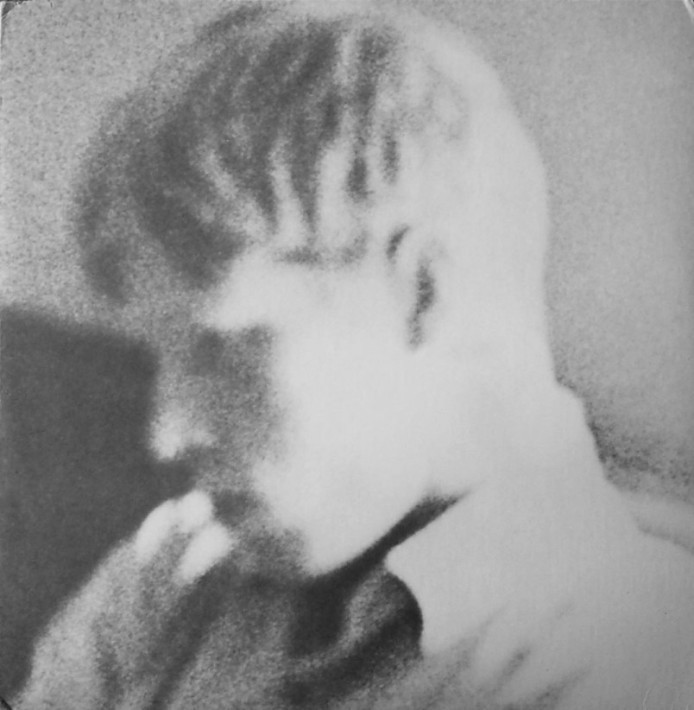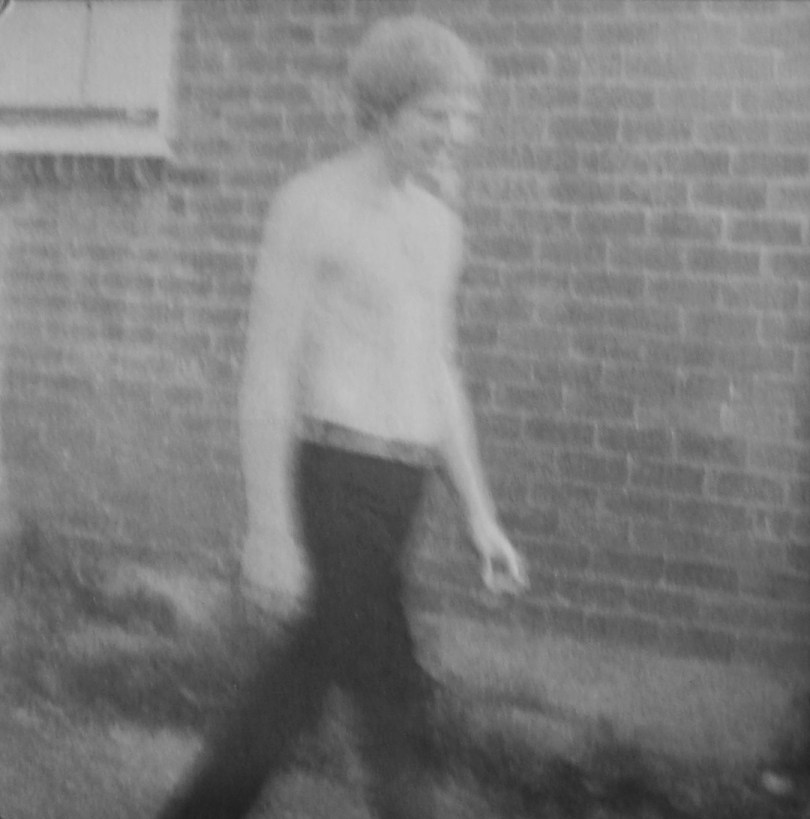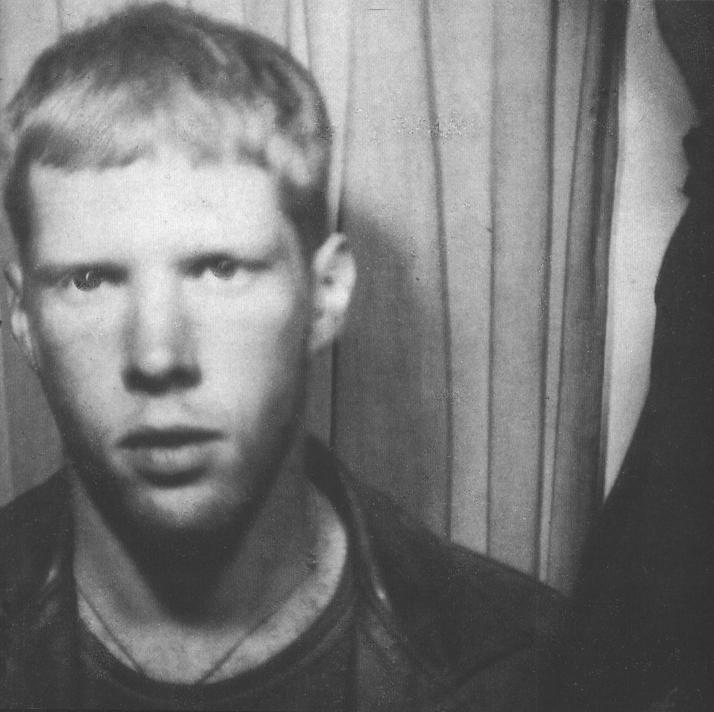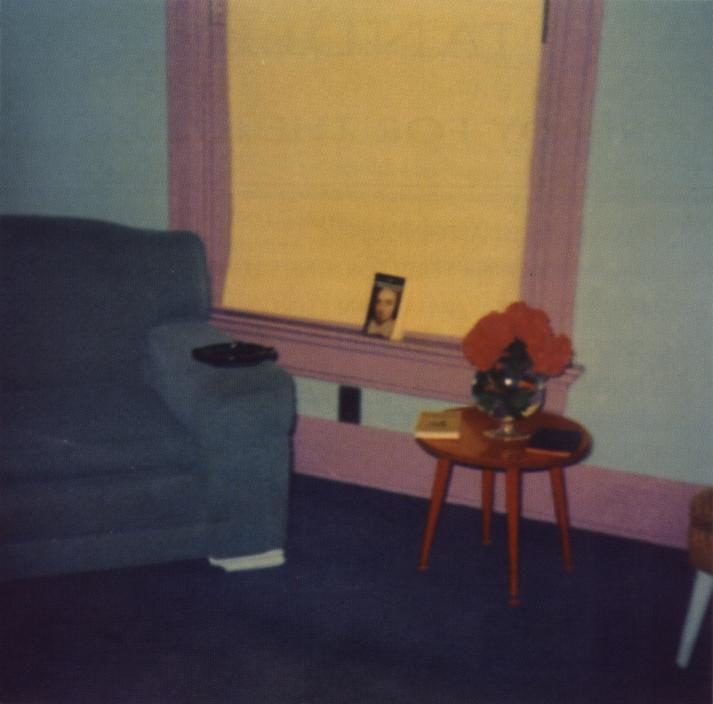On the Way is one of Jandek’s most varied albums and, while still being avant-garde as usual, ends up being one of the more “listenable” albums of his discography, and has some legendary songs. I was not as much of a fan of the album on my first listen as I am now; I felt like the variety of genres found on the album made it unfocused. Much of the album is inspired by blues rock, which I was also not a fan of at the time. However, after acquiring a taste for Jandek’s raw, accessible blues songs, and realizing variety is of the essence when it comes to Jandek albums, On the Way turns out to be one of my most favorite and most played Jandek albums.
The album starts with one of the most dissonant experimental rock songs I have ever heard, “Wrap It Up”. The instrumentation is similar to “European Jewel” from Chair Beside a Window, with somewhat of a “rhythm” guitar and a “lead” guitar, but it’s about as sensible as The Shaggs when it comes to classifying those parts. The drums march consistently, but don’t seem to follow the guitar at all. Jandek’s vocals are mixed louder than the rest of the instruments. He sounds downright exhausted and almost comedic as he yells shockingly dark lyrics like “IIIIII just wanna die… UGHHH, I’m living again”. The absolute chaos and the overdone performance makes this one of the most memorable Jandek songs in general. “Bring It Back to Seventy-Five” follows essentially the exact same song formula as “Wrap It Up” with similarly hopeless lyrics. My favorite part is “WhooOOOoops, I spilled the beans” which actually makes me laugh.
Then there’s “Message to the Clerk”, the first straight-up blues rock song from Jandek I heard. The guitar rhythm and the harmonica accompaniment is super catchy and very raw and lo-fi. The best part of the song is Jandek’s vocal performance, which really illustrates him as a genuinely talented vocalist. It is mostly screamed and sounds muffled, as if the mic is right by his mouth, which fits the noisy nature of this album. The performance fits the instrumental perfectly. The lyrics tell a confusing story that’s generally about the singer being a rebel with a gun. The song is 7 minutes long, but still manages to be addictive and very replayable.
“Give It the Name” is an even more accessible and catchy blues rock song. The bass, guitar, and drums rumble together in a slow, infectious rhythm. The vocals are still the most interesting aspect of the song, but they are performed by what sounds like the alternate vocalist from Blue Corpse instead of Jandek. His voice is rough, like Captain Beefheart, and is perfect for blues. The lo-fi compression of the instruments complements the rawness of the song. “Ambient Instrument” is a cute blues instrumental, but I was never really that interested in it. “Sadie” is in the same vein as “Give It the Name” with the same vocalist and a similar instrumental style. It’s not as catchy, but it’s enjoyable nonetheless. The lyrics describe the singer’s adventures with a girl named Sadie as they go out partying and drinking every night, but eventually their relationship has a fall out.
The final 3 tracks of the album are gentle blues-inspired folk songs. “I’ll Sit Alone and Think a Lot About You” is a sweet, romantic song with beautiful vocals from the alternate vocalist. The song is based on a repeated finger-picked chord progression that sometimes changes to strumming. The drumming is peculiar and non-traditional like the previous tracks, but actually turns out sounding really gentle and hypnotic, and really adds to the haunting, calming atmosphere of the song. The song is very long, and I’m not the biggest fan of it myself, but I do appreciate that it’s one of the most pleasant-sounding and soothing things Jandek has ever put out. “The Only Way You Can Go” brings back Jandek’s vocals and pairs a whispery performance with a very gentle acoustic blues instrumental. The vocals get a little uncomfortable at times, the lyrics don’t make much sense, and it feels a little aimless, but it’s still a nice soothing song.
The final song, “I’m Ready”, is undoubtedly the best song on this record, and is the first song I show to people when I introduce them to Jandek. The chord progression is beautiful, and the strumming pattern is soft and flowing. Jandek’s vocals whisper one of his most profound lyrics: “If you wanna know why you’re a woman / It’s cause you don’t wanna be a man / You just wanna have one”. The lyrics describe a man who knows he’s infatuated with his object of love, but knows that there’s no future for them because there’s another man involved. The performance of the song is powerfully reserved and patient.
The variety of styles within On the Way is ultimately a great asset for the album and means that I can return to its songs when feeling different things. The last few songs are very calming, but I can also go to the first few songs if I just feel like frying my brain with the dissonance. It also shows Jandek’s strength and versatility in musicianship and songwriting. It rightfully deserves to be called one of his best albums.
8/10
Essential album?: Yes
Essential songs:
Wrap It Up*
Message to the Clerk*
I’ll Sit Alone and Think a Lot About You
I’m Ready*
